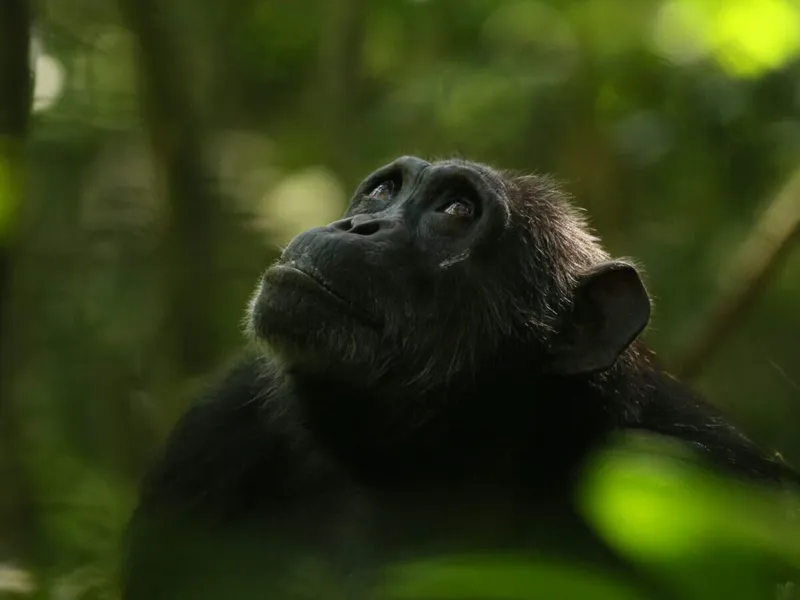When it comes to behaviour and biology, humans are unusually distinct from many other mammals – including in our ability to survive beyond our reproductive age.
For a long time, menopause was considered an experience exclusive to humans and some species of toothed whale. Now, a new study suggests that female chimpanzees also live long after their ovarian retirement.
Most mammals stay fertile until the end of their lives. But for the few that experience it, menopause happens when the ovaries stop functioning. It involves the decline of reproductive hormones like oestrogen and progesterone, which causes symptoms like hot flushes and brain fog. In humans, menopause tends to happen between the ages of 45 to 55.
Now, thanks to the meticulous observations of a 21 year field study, the fact that wild chimpanzees share this experience has come to light.
Between 1995 and 2016, a team of scientists observed the behaviour of a community of chimpanzees living in the lush rainforests of Kibale National Park in Uganda.

During this time, the scientists measured the mortality and fertility rates of 185 females in the Ngogo community (the same community whose complex politics were documented in the 2023 Netflix series Chimp Empire).
Hormone levels are often a key indicator of menopause in humans. The study, published in journal Science, revealed that the urine samples of these females also contained varying levels of hormones.
Given that they were aged between 14 and 67 years and had different reproductive abilities, this result suggests that hormone levels are also a marker of menopause in chimps.
In fact, the scientists discovered that chimpanzee females live about 20 per cent of their lives in a post-reproductive state. After 30 years of age, a chimp’s fertility begins to decline – and the scientists did not observe any births by mothers over the age of 50.
Why do chimps experience menopause?
No-one knows why, in evolutionary terms, menopause even exists – or why humans undergo it when so few other mammals do. One theory is the “grandmother hypothesis”: that women live on to help raise their children’s children.
But chimps are actually bad grandmothers, according to the study. They often live far away from their daughters and do not help with the care of their grandchildren.
Instead, the researchers speculate that the Ngogo chimps might currently be enjoying good ecological conditions (including an abundant food supply and low levels of predation) meaning they live longer post-reproductive lives. This aligns with the fact that chimps in captivity, who receive food and medical care, have lived well beyond their reproductive years.
Alternatively, other chimp populations may be experiencing the negative impact of humans – such as increased levels of disease – and so never live long enough to experience menopause.
The conclusive answer to why chimps survive beyond their reproductive years remains a mystery. Nevertheless, the researchers hope that the discovery will help us learn more about the evolution of menopause in humans.
According to evolutionary biologist Prof Michael Cant, who was not involved in the study, the research “both illuminates and raises questions about the evolution of menopause.”
He added that the results could “transform fundamental understanding of human biology and behaviour”.
Read more:





